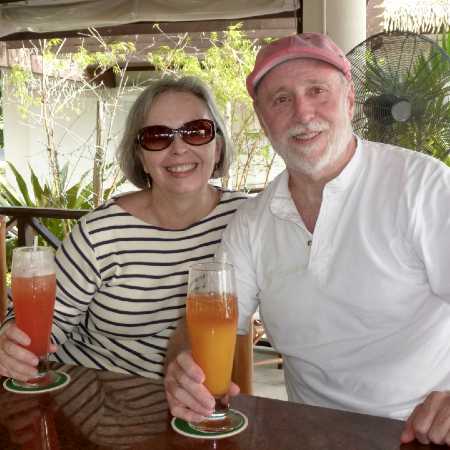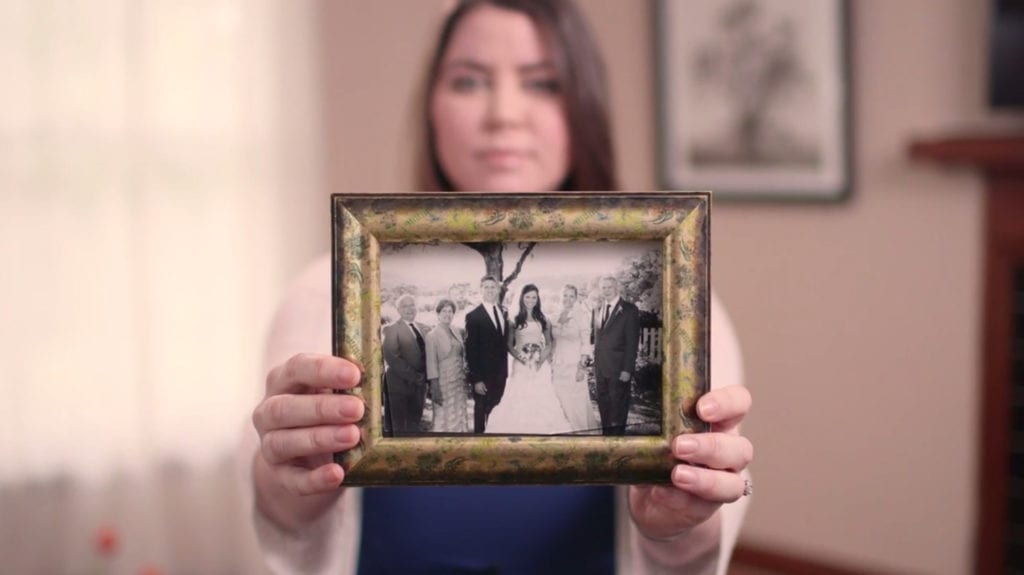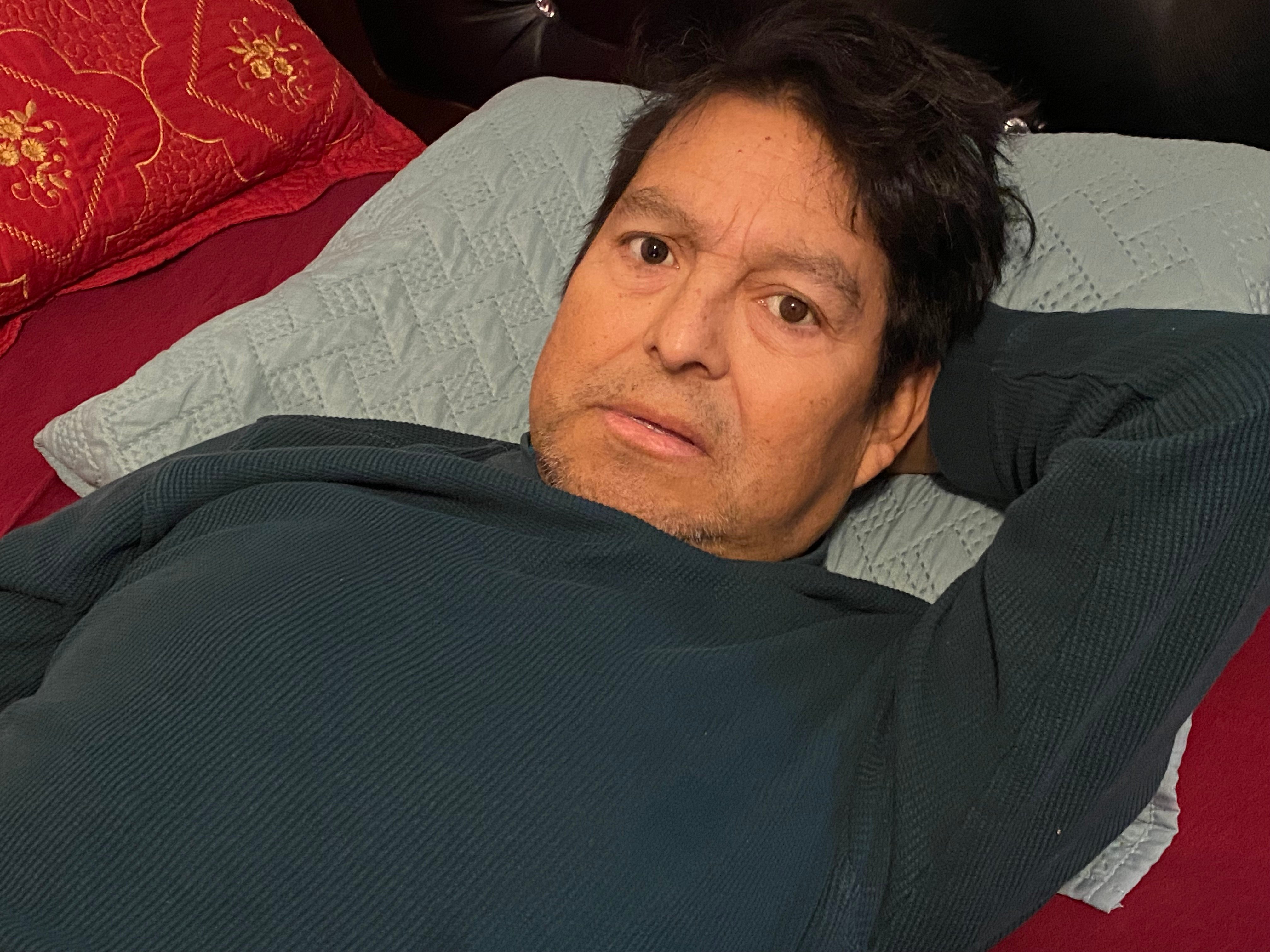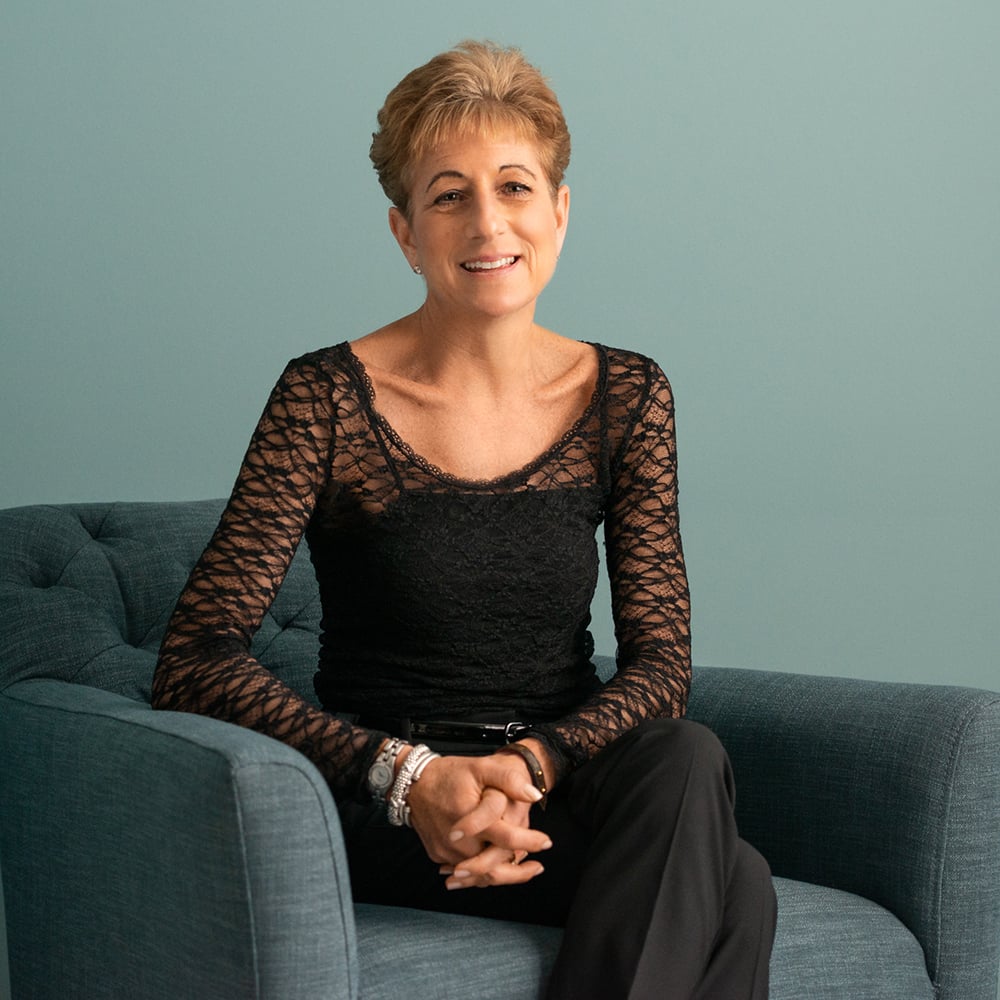Brenda shared her story in January of 2022.
My husband Paul died slowly in a prison of pain. If medical aid in dying were an option in Delaware, as Paul and I wished it were, he could have avoided those last torturous weeks. I would have made him his favorite meal, cavatelli and broccoli, and we would have enjoyed a glass of his favorite Portuguese wine and listened to his favorite music: rhythm and blues. I would have kissed him goodnight and he would have fallen asleep. He desperately wanted that.
Instead, Paul endured unrelenting pain for more than nine months from the cancer that had spread to the bones in his skull, spine, sternum, ribs, hips and legs. Towards the end, he was on the highest dose of Fentanyl, augmented by oxycontin and morphine, and still, he couldn’t lie flat due to terrible pain in his chest. One day there’d be pain in his side, then there’d be pain in his hip, then his knee as the cancer spread uncontrollably. When you’re in that kind of pain, it’s your whole universe.
Before all of this, Paul and I lived a good life together. We met through the online dating website eHarmony. When he reached out to me, to be honest, he wasn’t someone I would have been immediately attracted to. But he was interesting. He seemed sincere. He seemed kind. We met for lunch for our first date, and when we sat down, the waiter asked if we wanted a drink from the bar. I thought, “I’m not going to have a drink at lunch on a first date.” Then Paul said, “What kind of Irish whiskey do you have?”
At the time, I had a tour company specializing in Ireland; I had spent a lot of time in Ireland and I knew Irish whiskey very well. I’d even conducted Irish whiskey tastings. It was like the universe saying, “Pay attention.” On our second date, we visited a museum, and afterwards, walking through the historic district, he asked, “May I hold your hand?” That’s when I knew that he was for me.
Paul and I were very compatible and he was so good to me. He was also good to his family and good to strangers in need. He retained a childlike innocence that children recognized and gravitated toward. As a father and grandfather, “GrandPaul” loved reading children’s books to his little ones. Watching him read to his grandchildren revealed a tenderness that could melt the coldest heart.
We traveled — to Portugal, Ireland, Nevis and elsewhere — and we built our dream retirement home here in Delaware. We expected to have at least two more decades together. Paul’s parents died in their late 90s, and my father lived to 95. We lived a very healthy and active lifestyle. Paul lifted weights, bicycled, hiked, kayaked and gardened. We ate organic food, drank plenty of purified water and exercised. Anything we could do to ensure good health, we did. Paul had a zest for life. There was no reason to expect Paul would be facing imminent death at 71.
But we weren’t here a year and a half before he was diagnosed with metastatic prostate cancer that had already spread to his skull. The news was a shock. We were devastated. We knew this cancer was going to end his life. Through research, we learned the five-year survival rate was three percent.
For four years, Paul underwent treatment in the hopes that it would afford him more time. He tried radiation, hormone blocking therapy and chemotherapy. He endured painful medical procedures and multiple hospitalizations, infections and complications over the last two years of his life. After living through the destructive effects of ongoing treatment with no improvement of his pain and no hope of a cure, Paul decided in March of 2021 to end treatment.
In the last few months, Paul spoke frankly with his medical oncologist, radiation oncologist, pain and palliative care physician, hospice nurse, hospice doctor and social worker and shared that he was ready to die, that he didn’t want his life prolonged, and that he was tired of the uncontrollable and escalating pain. Without the legal option of medical aid in dying and as a longtime supporter of Compassion & Choices, he found details on their website for voluntarily stopping eating and drinking (VSED). Determined to end his suffering, Paul decided, “That’s what I’m going to do.”
Having to support the love of my life to hasten his inevitable death by starvation and dehydration, however, was incredibly difficult. For one week, Paul was in a hospice facility in an attempt to control his pain. His hospice nurses and doctors didn’t fully understand VSED, and although we explained Paul’s wishes, they started giving him soda to wash down his medication. This prolonged the process. They were adamant that giving Paul something to drink would not draw out his suffering, and Paul started to believe them. When the hospice facility sent him home, he continued asking for soda.
Finally, our friend (a nurse) explained to him that this was indeed prolonging his death. Paul decided to stop all liquids. This was about two weeks into the process; he lingered for another week. The last few days were very difficult. His throat was so dry that he could only whisper. I put balm on his lips and gave him special dry mouth oral rinse to ease him. It was agony for him. It was agony for me. How do you eat or drink when someone you love is with you dying of starvation and dehydration as their only legal option?
Around 10 p.m., on Paul’s last night, I was emotionally and physically exhausted. I just wanted to close my eyes and thought, “I’m just going to lie down, but I’ll know when the end is near. His breathing will change.” He was in a hospital bed in our bedroom right next to me, and I could hear his breathing. Sure enough, around three in the morning, I woke out of a deep sleep. His breathing had changed. I kissed his forehead and sat with him until he was gone. He breathed his last at 3:15 a.m.
I want legislators to know that depriving people of choice and forcing them to go through what my husband went through is cruel for the person and their family. Paul was a champion for the underdog, devoted to helping others. I am overwhelmed with grief that he suffered and that no legal, compassionate option existed to give us a peaceful transition that honored the kind-hearted and generous person he was.
I feel strongly that people who are in positions of power need to understand that passing this bill isn’t going to cause more people to die. It is going to allow fewer people to suffer.
Paul grew up in a very devout Catholic household: his father was the longtime editor and eventual publisher of Commonweal magazine, a highly regarded Catholic publication, and he attended Mass every morning. Paul was educated in Catholic schools from kindergarten through college. As a Catholic, Paul strongly believed that God did not want someone to suffer needlessly.
Most people don’t know how they are going to die. A few do. When my mother was diagnosed with incurable ovarian cancer, she said, “I am not afraid of dying, I am afraid of suffering.” When you know that your death will be preceded by pain and suffering, fear consumes your thoughts and makes it impossible to find any joy in your final days. Giving a dying person a legal option to embrace death when the suffering becomes too much is an act of kindness and mercy. It allows them to focus on life knowing that there is an option if they need it.
Paul knew that I was sharing our experience to advocate for the option for medical aid in dying in Delaware. He knew he would not benefit from such a law himself but told me, “I am proud of you for sharing our story. I will be very proud if we can help get this bill passed.” I hope legislators will not let Paul’s suffering and death be in vain. May the passage of this bill be part of my good man’s legacy.






